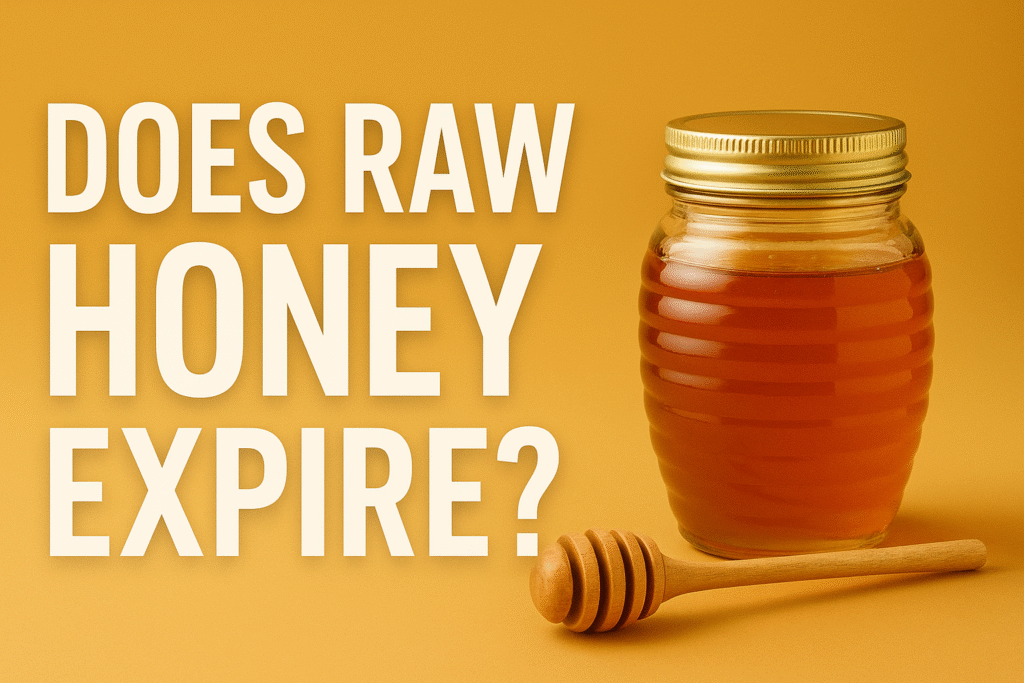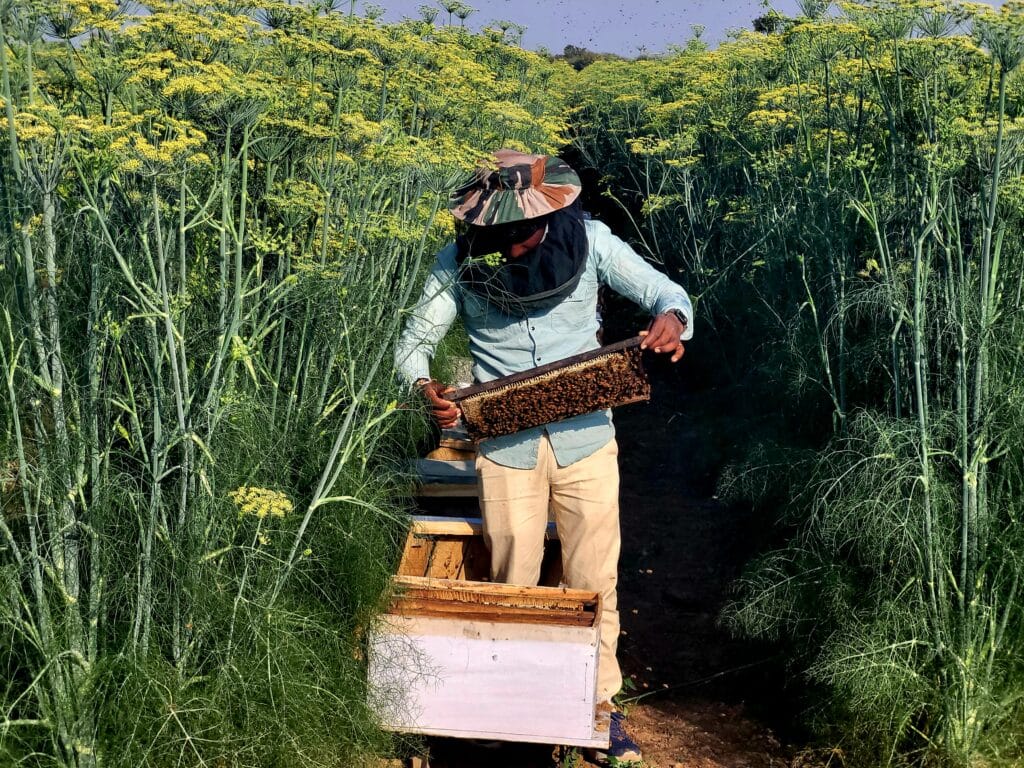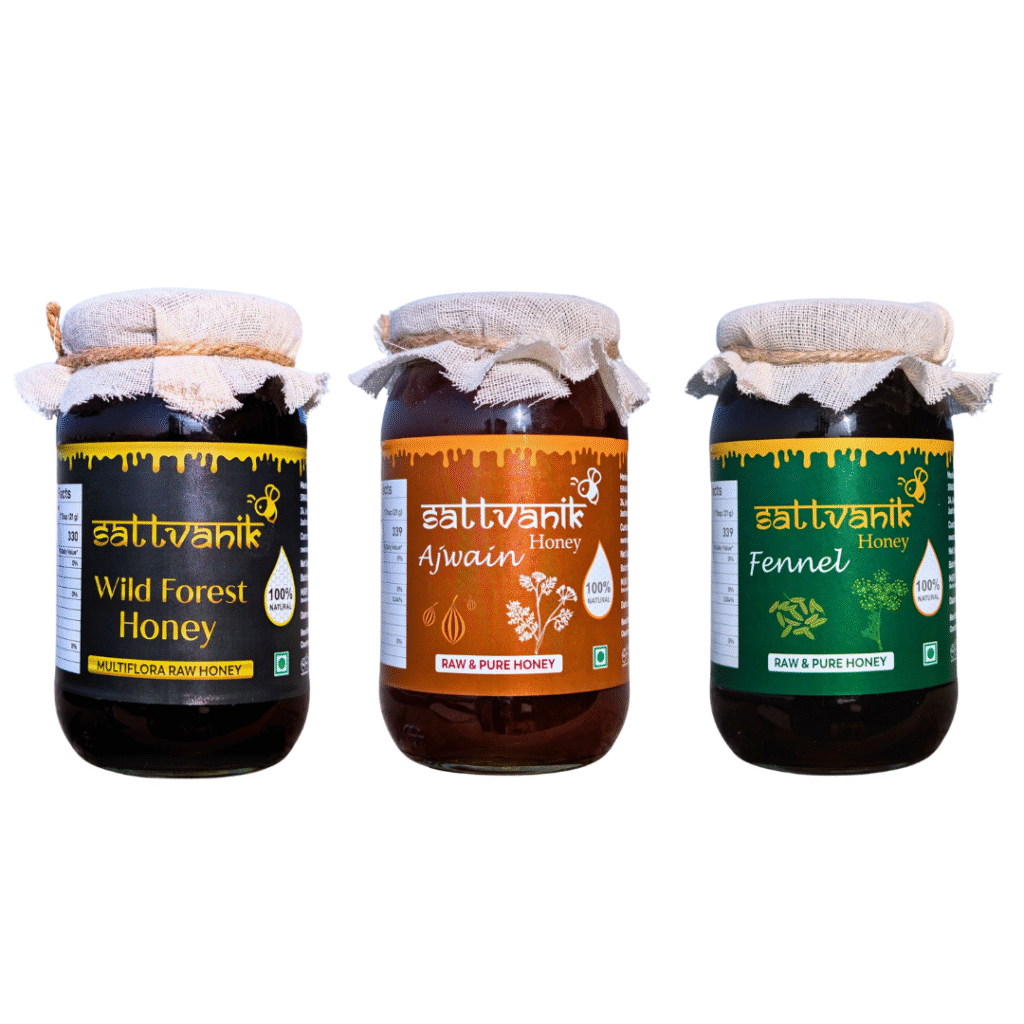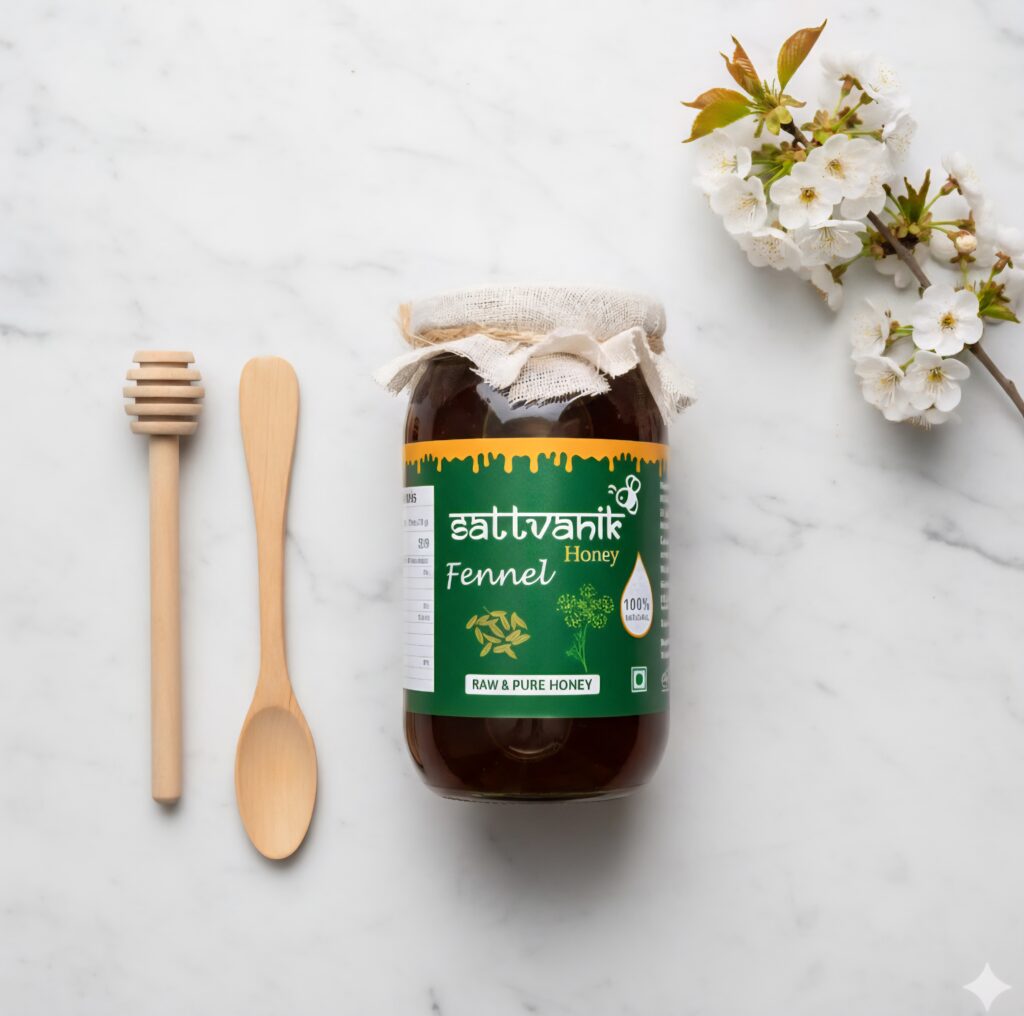
Honey is often called “nature’s liquid gold.” For thousands of years, it has been used as a sweetener, medicine, skincare ingredient, and even in religious rituals. From the ancient Egyptians, who sealed jars of honey in tombs, to modern households, honey continues to be one of the most fascinating natural foods.
But here’s a common question: Does raw honey expire?
The surprising answer is: No, raw honey never really expires. Unlike most foods, honey can last for centuries if stored properly. In fact, archaeologists discovered jars of honey in Egyptian pyramids that were more than 3,000 years old – and still perfectly edible!
So why does honey last so long? Let’s explore the science, myths, storage tips, and everything you need to know about honey’s incredible shelf life.
What is Raw Honey?

Before we talk about expiration, let’s first understand what raw honey actually is.
Raw honey is honey that comes straight from the beehive. It is minimally processed – usually just strained to remove wax and debris – but not heated or pasteurized. This means it retains its:
* Natural enzymes (like glucose oxidase)
* Antioxidants
* Vitamins & minerals (B vitamins, calcium, magnesium, potassium)
* Bee pollen & propolis Beneficial compounds** that support immunity and healing
This unprocessed form is what gives raw honey its unique flavor, texture, and **long shelf life.** Processed honey, on the other hand, is often heated to prevent crystallization and to look “smoother,” but this also reduces its natural enzymes and nutritional value.
Why Raw Honey Does Not Expire

Raw honey is practically immortal, thanks to its unique chemical composition. Here’s why:
1. Low Moisture Content
Honey contains only about 17–18% water. Most bacteria and microbes need a moist environment to grow, but honey is simply too dry for them.
2. High Sugar Levels
The high sugar concentration makes honey hygroscopic – meaning it pulls water away from anything around it. This leaves microorganisms unable to survive.
3. Acidity
Honey’s pH ranges from 3.5 to 4.5, making it acidic enough to prevent harmful organisms from growing.
4. Hydrogen Peroxide Formation
Bees add the enzyme **glucose oxidase** into nectar when making honey. This creates small amounts of hydrogen peroxide – a natural preservative with antibacterial properties.
5. Natural Antioxidants
Raw honey contains flavonoids and phenolic acids, which not only fight free radicals but also help preserve it.
Together, these factors make honey one of the few foods on Earth that can essentially last forever.
What Happens to Honey Over Time?
Even though raw honey doesn’t expire, it **does change with age.** These changes are completely natural:
1. Crystallization– The sugars in honey form crystals, making it look grainy or solid. This does not mean it has gone bad.
2. Color Changes – Honey may darken as it ages due to oxidation.
3. Flavor Changes – The taste may become richer or more robust.
4. Fermentation (Rare) – If honey absorbs excess moisture (more than 20%), it may ferment, producing bubbles, foam, or a sour smell.
👉 Crystallization is the most common change. Some people actually prefer crystallized honey because it spreads easily on bread!
How to Fix Crystallized Honey
If you want your honey to return to liquid form, here’s how to do it safely:
* Place the honey jar in warm water (not boiling) for 15–20 minutes.
* Stir gently until the crystals dissolve.
* Never microwave honey, as high heat destroys its beneficial enzymes.
Pro tip: Store honey at room temperature – not in the fridge – to slow down crystallization.

—
How to Store Raw Honey Properly
To keep honey in perfect condition for years (or even decades), follow these tips:
1. Use Airtight Containers– Glass jars or food-grade plastic are ideal. Avoid metal containers, as honey is slightly acidic and may corrode them.
2. Keep it Cool & Dry– Store honey in a cupboard or pantry at room temperature (ideally 18–25°C / 64–77°F).
3. Avoid Moisture– Never leave the lid open, as honey easily absorbs water from the air, which can cause fermentation.
4. Keep Away From Sunlight – Direct light can affect honey’s antioxidants and flavor.
If stored correctly, raw honey can literally outlive you!
Raw Honey vs. Processed Honey Shelf Life
* Raw Honey– Lasts indefinitely if stored properly. May crystallize over time but remains edible.
* Processed Honey – May also last a long time, but heating reduces enzymes and antioxidants. Sometimes, added sugars or syrups in commercial honey can cause it to degrade faster.
Always check labels and try to choose raw, unprocessed honey for both health benefits and longevity.
Signs Your Honey Has Gone “Bad”
Although honey doesn’t expire, it can go bad under certain conditions (mostly due to improper storage). Signs include:
* Sour or fermented smell
* Bubbling or foamy surface (fermentation)
* Excessive separation of liquid and crystals
If this happens, it’s best to avoid eating it.
Honey in History: Proof of Its Longevity
Honey’s eternal shelf life is not just theory – history proves it!
* Egyptian Tombs – Archaeologists found jars of honey sealed in tombs more than 3,000 years old, still edible.
* Roman Soldiers – Carried honey for energy and wound treatment.
* Traditional Medicine – Used in Ayurveda, Chinese medicine, and Greek practices for centuries as a preservative and healer.
This shows honey’s incredible power to resist spoilage naturally.
Health Benefits of Raw Honey (Extra Reason to Store It Forever)
While honey’s shelf life is fascinating, its benefits are equally amazing:
* Natural energy booster
* Helps soothe sore throat and cough
* Contains antioxidants that fight free radicals
* Supports digestion and gut health
* Works as a natural wound healer (antibacterial properties)
* Better alternative to refined sugar
So even if honey could expire, it would still be worth keeping in every home!
Frequently Asked Questions About Honey’s Shelf Life
Q1: Can honey really last forever?
Yes, if it is raw, pure, and stored properly in airtight containers.
Q2: Why does my honey look cloudy or crystallized?
That’s natural crystallization. The honey is still good to eat.
Q3: Can expired honey make you sick?
Raw honey doesn’t expire. But if it ferments (due to moisture), it may upset your stomach.
Q4: Should I refrigerate honey?
No. Refrigeration accelerates crystallization. Store at room temperature.
Q5: Can infants eat honey?
No, babies under 1 year old should not be given honey due to the risk of infant botulism.
Conclusion
So, does raw honey expire? The answer is NO – raw honey doesn’t spoil or go bad. Its low water content, natural acidity, high sugar concentration, and antibacterial compounds make it one of the most stable foods on Earth.
While its texture, color, or flavor may change over time, these changes are natural and harmless. If stored correctly, honey can last not just years, but centuries.
👉 Whether you’re adding it to tea, drizzling it over pancakes, or using it as a natural remedy, you can enjoy raw honey with confidence – knowing that this liquid gold is truly timeless.



